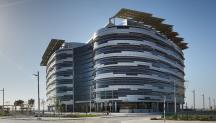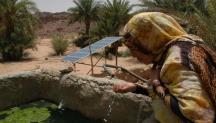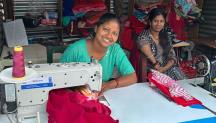

IRENA and UAE Launch Initiative at COP28 to Empower Lives and Livelihoods
Newsletter
Cross-sector partnerships facilitate deployment of renewables solutions in agri-food and health sectors to benefit communities at the frontlines of climate change.
Dubai, United Arab Emirates, 4 December 2023 – The International Renewable Energy Agency (IRENA) and the United Arab Emirates (UAE) officially launched today the ‘Empowering Lives and Livelihoods – Renewables for Climate Action’ initiative at COP28. The initiative aims to strengthen climate resilience and adaptation in vulnerable communities by transforming agri-food and health value chains with renewable energy.
Energy is inextricably linked to climate change and many other Sustainable Development Goals, including but not limited to food security and healthcare services. Around 2.5 billion people live in households that rely on the agricultural sector for their livelihoods, and about 30 per cent of the world’s energy is consumed within the agri-food systems. The majority of which are fossil fuel-based, making supply chains vulnerable to price and supply shocks.
In the health sector, an estimated 1 billion people rely on health facilities without electricity. A recent study by IRENA, World Health Organisation and other partners finds that 12 per cent of primary health facilities in South Asia and 15 per cent in Sub-Saharan Africa, have no access to electricity. In both the agricultural and the health sectors, women in particular are disproportionately affected.
These challenges call for greater access to reliable, affordable and sustainable energy. Decentralised renewable energy solutions can enhance productivity, raise incomes, enable value addition, reduce losses, improve climate resilience and bridge the energy access gap in a cost-effective and timely manner. They can generate wider benefits to the communities that need them most; rural clinics can preserve life-saving vaccines, and farmers can have access to sustainable irrigation, for example. However, those solutions need to be scaled up.
IRENA Director-General, Francesco La Camera, said, “Renewable energy solutions in agri-food and health sectors provide an opportunity to simultaneously advance both energy and food security, while contributing to job creation, gender equality and climate action. Combining powerful networks, robust financial resources and technical knowledge will support progress in bringing the needed fund to realise those benefits in communities that need them most.”

The UAE Minister of Climate Change and Environment HE Mariam Bint Mohammed Saeed Hareb Almheiri said, “This initiative is aligned with one of the COP28 Presidency’s key pillars that put nature, people, lives and livelihoods at the heart of climate change. The UAE is committed to ensuring sustainable food system that is evident from the COP28 UAE Declaration on Food Systems, Resilient Agriculture and Climate Action signed by 134 countries. The initiative launched today will bring wider socio-economic benefits in underserved communities. We are proud to work with IRENA on this initiative, and welcome more partners to join the collective effort.”
Through the Empowering Lives and Livelihoods initiative, IRENA and the UAE are building multi-stakeholders partnerships that combine the resources and expertise of governments, private sector, development banks, financial and technical institutions, and philanthropy. Partners joining the Initiative can be part of the solution in strengthening the resilience of agri-food and health value chains with renewable energy.
Together, partners will provide and channel tailored financial solutions and programmatic support to countries, with particular emphasis on least developed countries and Small Island Developing States (SIDS). At the same time, the Initiative seeks to drive equity benefits for women and youth, as the groups that are most impacted by climate change and lack of access to opportunities and affordable finance.
IRENA is currently engaged at various stages with 13 countries across Sub-Saharan Africa, South Asia and SIDS, attracting high interest from other members to participate in the Initiative. It has also engaged with several international and national stakeholders to drive on-ground actions and help implement the initiative.




